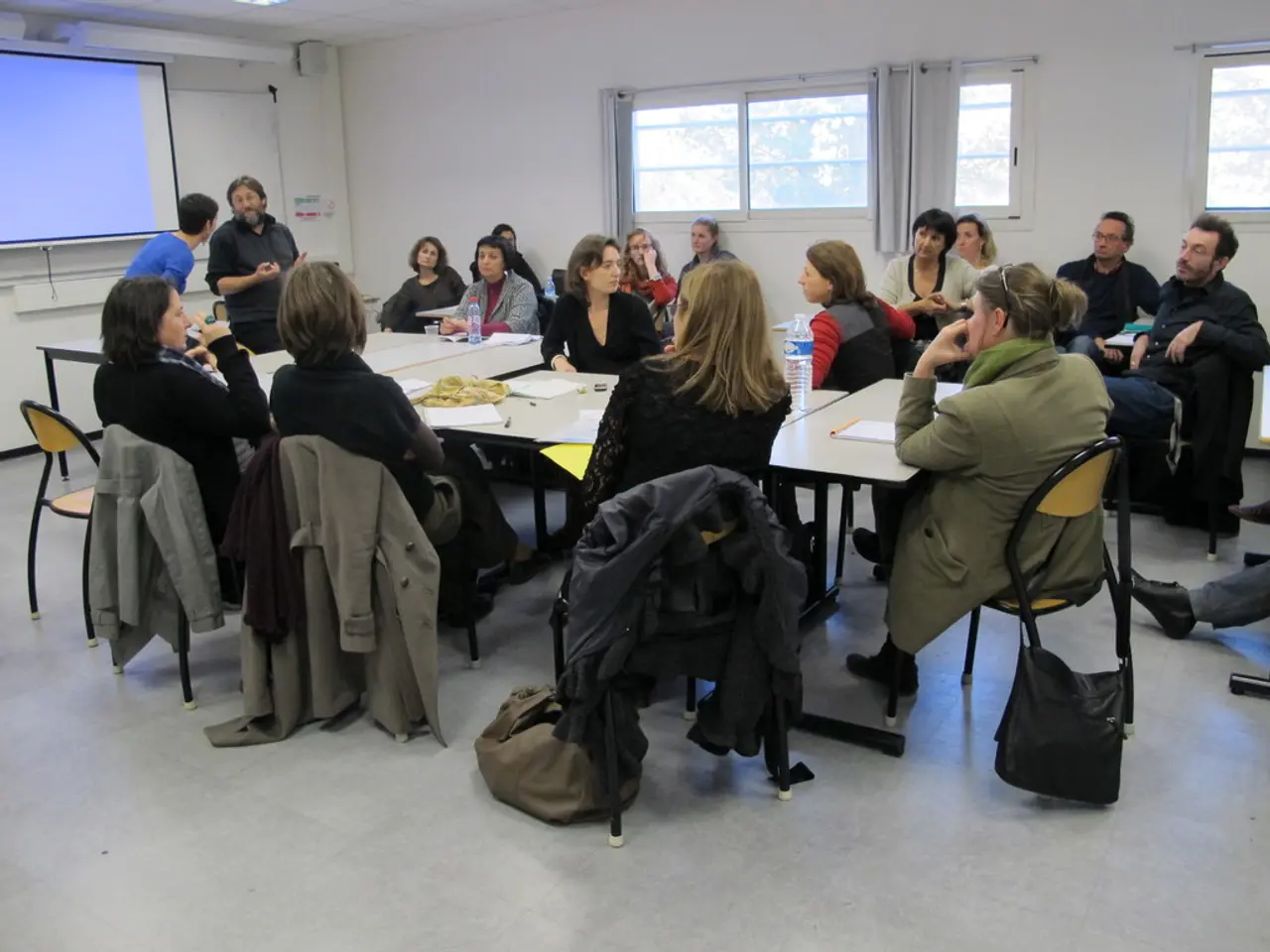Addressing Disagreements Effectively: Moving Beyond Simply Avoiding Clashes
In today's world, conflict avoidance is a common phenomenon, often stemming from fear of emotional vulnerability or social anxiety. Modern technology, while offering numerous conveniences, also allows us to sidestep difficult conversations, face-to-face. However, avoiding conflicts can lead to broken relationships, a damaged reputation, and strained interactions at work or at home.
Effective strategies for overcoming conflict avoidance and promoting interpersonal conflict resolution include improving communication skills, encouraging open and honest dialogue, focusing on underlying interests rather than fixed positions, practicing conflict resolution on smaller issues first, and seeking mediation or third-party help when needed.
Recognizing the costs of avoidance is the first step towards engagement. Understand that avoiding conflict may bring temporary calm but can harm relationships, trust, and reputation over time. This awareness helps motivate engagement with conflict rather than avoidance.
Creating safe spaces for open dialogue is crucial. Regular meetings or one-on-ones can provide individuals with a platform to express concerns without fear, preventing escalation. Shifting from fixed demands to understanding the why behind each party’s stance can lead to finding mutually beneficial solutions through interest-based negotiation.
Building confidence by addressing minor conflicts first can help develop skills and reduce fear around conflict engagement. Using clear and respectful communication, employing "I" statements, avoiding personal attacks, and describing behaviours rather than labels or perceived character flaws can reduce defensiveness and increase understanding.
Before engaging in a conflict, it's beneficial to prepare mentally. Writing down a plan for approaching the conflict, considering different perspectives, and desired outcomes can help manage the situation effectively. If the conflict is complex or emotionally charged, seeking help from a trusted friend, counselor, manager, or professional mediator can facilitate resolution.
Being patient allows understanding all viewpoints and facilitates better management of the conflict process. After resolution, checking in to ensure the conflict remains resolved and maintaining healthy communication is essential.
These approaches work in both personal relationships and workplace settings by fostering constructive communication, reducing fear or defensiveness, and encouraging collaborative problem-solving. Combining self-awareness, communication skills, emotional regulation, and external support helps individuals move beyond conflict avoidance towards effective interpersonal conflict resolution.
The phenomenon of "quiet quitting" can manifest as avoidance of hard conversations and negotiations about workload. Acknowledging the discomfort you feel before explaining why it's important to talk things through can help overcome this behaviour. The practice of ghosting, ending relationships without explanation, has become common. However, before reaching out to the other person or people involved in a conflict, it's beneficial to think through and perhaps write down a plan for coping with the conflict.
Avoiding conflict can compromise our resilience, mental health, and productivity in the long term. If you believe you have been wronged, presenting your interpretation of the situation and asking the other person to describe how they see things can help resolve the conflict.
In conclusion, overcoming conflict avoidance is crucial for maintaining healthy relationships and personal growth. By recognizing the costs of avoidance, encouraging open dialogue, focusing on interests, practicing on smaller issues, using clear and respectful communication, seeking help when needed, developing patience, following-up, and adopting these strategies, we can move towards effective interpersonal conflict resolution.
- Incorporating research on conflict resolution into education-and-self-development programs could help individuals develop the skills to confront conflicts effectively, promoting personal growth.
- Conflict resolution isn't just restricted to our professional lives; it plays a significant role in shaping our lifestyle and relationships outside of work as well.
- Engaging in open and honest dialogue during mediation sessions can help foster a deeper understanding of each party's interests and goals, leading to a more amicable resolution.
- By learning negotiation skills alongside law studies, future lawyers could gain the ability to help clients resolve conflicts efficiently and constructively, benefiting their practice and reinforcing the importance of effective conflict resolution in our society.
- Substituting conflict avoidance with negotiation and mediation techniques can lead to stronger relationships, both personally and professionally, promoting a more fulfilling lifestyle based on mutual understanding and respect.




